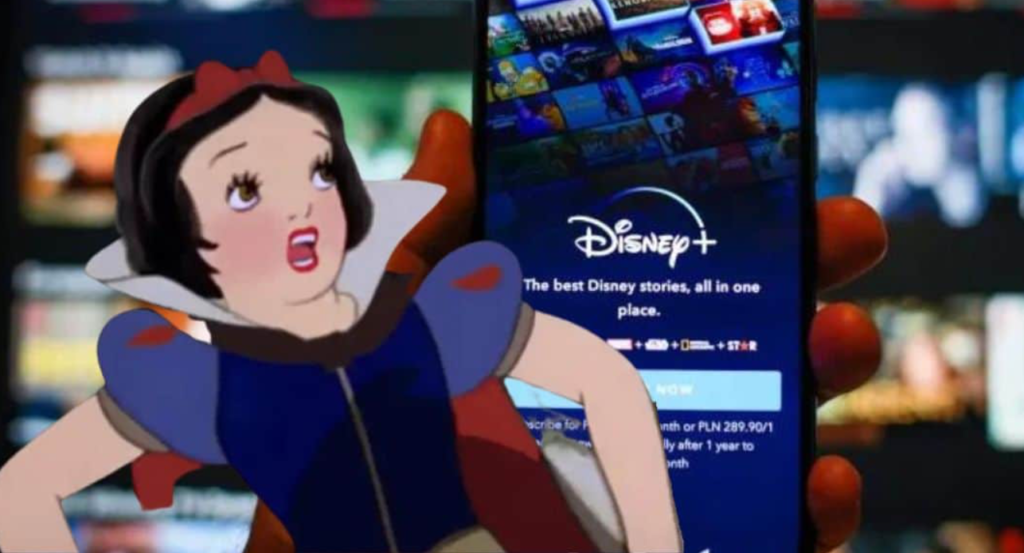OpenAI introduces SORA
Sora can create a video up to 1 minute in length. It is currently being tested by Red Teams. The link has more info and multiple videos.
https://openai.com/sora?fbclid=IwAR2RELh3nFGj3iFaFYgZoHhI0AqbgwS0LSxK5vXx8bsjkTBBebRertDFa-4#capabilities
OpenAI CEO says ‘very subtle’ misalignments could make AI wreak havoc
OpenAI CEO Sam Altman on Tuesday warned the “very subtle societal misalignments” within artificial intelligence (AI) could cause things to “go horribly wrong,” while still expressing optimism about the technology’s benefits. ...
“I’m much more interested in the very subtle societal misalignments where we just have these systems out in society and through no particular ill intention, things just go horribly wrong,” added Altman, whose company created ChatGPT.
Altman, however, said he believes “things will go tremendously right,” if efforts are made to mitigate the downsides of AI technology. ...
See the full story here: https://thehill.com/policy/technology/4464982-openai-ceo-subtle-misalignments-ai-wreak-havoc/
MoviePass – Profitability Milestone Underscores the Significant Impact that Artificial Intelligence and Machine Learning Enhancements Have had on Managing Its Cinematic MarketplaceMoviePass –
... The MoviePass Cinematic Marketplace is an aggregator for the industry that uses AI and machine learning engines to improve attendance and performance. The proprietary credit system helps drive exploration of titles looking to compete against movies with much larger budgets. Based on internal member testing, MoviePass found that on average, there is a 40 percent shift to theater location offering the same movie for fewer credits. Members increase midweek attendance by 50 percent and go to an average of 2.4 different theater locations while using their MoviePass subscription. ...
MoviePass has the largest theater footprint of any subscription service featuring over 3500 locations across America and covering all 50 states with a reach of over 97 percent of the market. ...
See the full PR here: https://www.globenewswire.com/news-release/2024/02/13/2828293/0/en/MoviePass-Surpasses-One-Million-Movies-Seen-On-Its-New-Platform-and-Achieves-First-Profitable-Year-in-Company-History.html
Google and Anthropic Are Selling Generative AI to Businesses, Even as They Address Its Shortcomings
‘We’re not in a situation where you can just trust the model output,’ said Eli Collins, vice president of product management at Google DeepMind
... Jared Kaplan, co-founder and chief science officer of Anthropic, said the AI startup is working on a number of techniques that will reduce hallucinations, including building data sets where the model should respond to questions with, “I don’t know.” The idea is that the AI system can be trained to respond only when it has sufficient information, or will provide citations for its answers. ...
One solution is to make it easy for users to identify the sources of information that AI systems like its Gemini chatbot send back, said Eli Collins, vice president of product management at Google DeepMind. ...
Large language models, once they have been trained on certain data, can’t “delete” that information from what they have already learned, Kaplan said. ...
See the full story here: https://www.wsj.com/articles/google-and-anthropic-are-selling-generative-ai-to-businesses-even-as-they-address-its-shortcomings-ff90d83d
A.I. Can Help “Personalize” Policies to Reach the Right People
Combining the power of experiments with the potential of machine learning has tremendous implications for designing more effective public policy.
... Ultimately, the researchers concluded that the most effective policy is to target nudges to the middle of the group — students who are neither the most nor least likely to reapply for financial aid. At either end of this spectrum, the power of the nudge weakens, particularly for those who are the least likely to apply for aid. ...
The machine learning model, in essence, can help mitigate concerns of external validity by fitting the results from one population to another distinct population.
This hybrid approach has the potential to make experimentation less expensive by supporting faster iteration. As an experiment is running, machine learning can discern what works and suggest ways to fine-tune interventions in real time for maximum impact.
For policymakers, this adaptable, targeted process provides the ability to move beyond catchall approaches that are often costly and marginally effective. ...
The method, Spiess says, also illuminates blind spots — such as the people who are left behind by certain interventions.
See the full story here; https://www.gsb.stanford.edu/insights/ai-can-help-personalize-policies-reach-right-people
Disney’s Newest Robot Demonstrates Collaborative Cuteness
How two robots can be much more capable than one
... Having robots work together–especially if they have complementary skill sets–can open up some exciting opportunities, especially in the entertainment robotics space. At Walt Disney Imagineering, our research and development teams have been working on this idea of collaboration between robots, and we were able to show off the result of one such collaboration in Shanghai this week, when a little furry character interrupted the opening moments for the first-ever Zootopia land.
Our newest robotic character, Duke Weaselton, rolled onstage at the Shanghai Disney Resort for the first time last December, pushing a purple kiosk and blasting pop music. As seen in the video below, the audience got a kick out of watching him hop up on top of the kiosk and try to negotiate with the Chairman of Disney Experiences, Josh D’Amaro, for a new job. ...
Watch the video here: https://www.youtube.com/watch?v=ZRJFYlldkBw&t=361s (PhilNote: the robot is the better actor)
What might not be obvious at first is that the moment you just saw was enabled not by one robot, but by two. Duke Weaselton is the star of the show, but his dynamic motion wouldn’t be possible without the kiosk, which is its own independent, actuated robot. ...
The character is an expressive, bipedal robot with an exaggerated, animated motion style. It looks fantastic, but it’s not optimized for robust, reliable locomotion. The kiosk, meanwhile, is a simple wheeled system that behaves in a highly predictable way. ...
Because the character robot is tough and because there is some flexibility built into its motors and joints, small errors in placement and pose don’t create big problems like they might for a more conventional robot. The character can lean on the motorized kiosk to create the illusion that it is pushing it across the stage. The kiosk then uses a winch to hoist the character onto a platform, where electromagnets help stabilize its feet. ...
Watch the robots train here: https://www.youtube.com/watch?v=VFNruidzlZw&t=54s
See the full story here: https://spectrum.ieee.org/disney-robot-2666681104
EIDR’s Kroon, WaveSeven’s Crosby Co-Author Metadata Paper
... The paper shares insights into the history of data-driven content decision-making, the importance of a successful data governance strategy within an organization, the complexities of content and data version management throughout the worldwide content supply chain, and how EIDR has helped ease the workload when it comes to content identification. ...
“Rather than viewing data governance as a barrier or a cudgel, embrace it as a catalyst for innovation. With this approach, media and entertainment companies can transcend challenges and carve a path toward sustained excellence and profitability in a dynamic and highly competitive landscape.” ...
See the article and paper here: https://www.mesaonline.org/2024/02/12/eidrs-kroon-wavesevens-crosby-co-author-metadata-paper?utm_source=MESA+Newsletters&utm_campaign=7153e3869c-EMAIL_CAMPAIGN_2024_02_12_09_11&utm_medium=email&utm_term=0_5534b41342-7153e3869c-%5BLIST_EMAIL_ID%5D
Experts Discuss Copyright, Licensing at RightsTech AI Summit
By Phil Lelyveld
February 12, 2024
The RightsTech AI Summit at Digital Entertainment World 2024 covered a range of technical and legal issues over the course of seven panels with a focus on generative AI, copyright and licensing. The event, held at UCLA, featured speakers from areas including entertainment, data management, legal and academia. Among the key takeaways: fair use is expected to become a defense in AI cases, data used to train AI will likely become a legal issue in regards to licensing agreements, we may soon need copyright law that protects an artist’s style, Big Tech lobbying efforts are becoming a concern, and states are outpacing Washington on AI regulation.
UC Berkeley Professor of Law Pamela Samuelson expects fair use to be a major defense in the 16 generative AI cases currently before U.S. courts that she is following. Most are related to using publicly-accessible scraped content in training data without the IP owners’ permission.
In most of these cases, Samuelson does not think the IP owners will be able to convince the court that they will experience actual harm or face a meaningful chance of harm through the unlicensed use of openly available content from the web for AI training purposes.

She said this is analogous to the Google books case, in which Google scanned libraries of protected books without permission. The court agreed that Google simply analyzed the text and did not reproduce the books themselves.
Samuelson does, however, feel that The New York Times has a strong case against OpenAI, since NYT has a marketplace for licensing their content already established. Samuelson noted that after the AI is trained another dataset could be used for the released AI product instead of the training data set. Because none of the unlicensed data in the training data set would be present in the released product, she claims that no harm would have been done.
During the following panel, Microsoft Responsible AI Product Lead Sneha Deo made the point that copyright law covers specific works but does not protect an artist’s style. Artists work to create their own unique style, public persona and identity. There should be some way to protect style, since that has become the artist’s core value proposition in both the intellectual and monetary marketplace.
In the Update on AI Regulation and Legislation segment, Sophie Goossens, partner at Reed Smith LLP, noted that states are moving faster than the federal government on a number of aspects of AI regulation. California may lead the nation in this area.
Amy Isbell, SVP of public policy and government relations for Universal Music Group noted that, in the last year, AI companies have flooded DC with money and lobbyists. At the recent hearing with social media platform heads, legislators complained to them about their overwhelming lobbying effort on Capitol Hill.
Both the EU AI Act and President Biden’s Executive Order on AI call for labeling output that contains AI-generated “synthetic” content. Isbell noted that musicians have been using drum machines for decades. When does content become synthetic? she asked. The U.S. Patent and Trademark Office’s current view is that the portion of a submission that contains AI-generated content is not protectable by copyright. How synthetic content is defined will directly impact the IP landscape.
The Copyrighting Generative AI panel spent a good deal of time discussing the Rose Enigma case. The author of the graphic novel “Rose Enigma” wrote the text, produced prompts that instructed an AI to create complementary graphics, and then refined the prompts and made hand-drawn modifications to the graphics.
The artist’s lawyers claim that her process demonstrates that she exercised creative control over the final work even if an AI was involved. Panelist Josh Love, partner at Reed Smith LLP, made the point that if the Patent Office denies the author’s copyright claim, then by default the Office is placing the art into the public domain where platforms can monetize it without compensating the artist. They hope the case, which is pending, will provide clarifying education to the Patent Office.
Other interesting points were made during the day:
- Michael Grecco, founder of The American Society for Collective Rights Licensing said that by placing content in a blockchain before releasing it not only will provenance be maintained, but there will be clear documentation of original ownership if someone else tries to claim authorship.
- Lori Fena, co-founder of Personal Digital Spaces, proposed using an AI “similarity search” approach to track down infringing content.
- Josh Love said creatives want the three C’s: Consent, Control and Compensation.
- Sneha Deo described her work with the Montreal AI Ethics Institute, an international non-profit equipping citizens concerned about artificial intelligence and its impact on society to take action.
See the original post here: https://www.etcentric.org/experts-discuss-copyright-licensing-at-rightstech-ai-summit/
Nvidia CEO Huang says countries must build sovereign AI infrastructure
Nvidia (NVDA.O), opens new tab CEO Jensen Huang said on Monday that every country needs to have its own artificial intelligence infrastructure in order to take advantage of the economic potential while protecting its own culture.
"You cannot allow that to be done by other people," Huang said at the World Government Summit in Dubai. ...
See the full story here: https://www.reuters.com/technology/nvidia-ceo-huang-says-countries-must-build-sovereign-ai-infrastructure-2024-02-12/

Disney to Partner With Artificial Intelligence, ‘Emotional Control’ Coming Soon to Streaming Service
... The Walt Disney Company uses artificial intelligence to create a new advertising tool called “Disney’s Magic Words.” This tool lets brands customize their commercials to match the mood of specific scenes in movies or TV shows on Disney+ and Hulu. Disney can identify content, brands, images, and moods by analyzing scenes using AI and machine learning creating metadata tags. Brands can use these tags to personalize their messages to fit the scene or mood.
Geoffrey Calabrese, Omnicom Media Group’s chief investment officer, explained that this approach moves away from targeting broad demographics and instead focuses on specific audience emotions. Omnicom is one of six global advertising companies participating in an early test of this tool. ...
See the full story here; https://insidethemagic.net/2024/02/disney-streaming-service-artificial-intelligence-emotional-ads-emd1/

Pages
- About Philip Lelyveld
- Mark and Addie Lelyveld Biographies
- Presentations and articles
- Tufts Alumni Bio